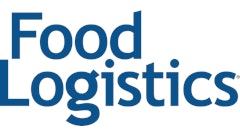
On average, 41% of total planning time is spent on data preparation, and while 30% of companies use dedicated planning software, 35% still rely on Excel spreadsheets, according to a CEL study.
"These survey findings reaffirm the critical role of effective supply chain planning in today's competitive landscape," says Julien Brun, founder and managing partner at CEL. "Effective supply chain planning is the key to unlocking operational excellence and driving business success. Studies have shown that companies with robust supply chain planning processes experience an average cost reduction of 15% and inventory reduction of 20-30%. Additionally, they achieve an impressive 99% on-time delivery rate and a 20% increase in customer satisfaction. By investing in optimized supply chain planning, organizations can maximize efficiency, minimize costs, and deliver exceptional value to their customers."
Key Takeaways:
- Over 44% of respondents identified demand unpredictability as the most challenging aspect of supply chain planning.
- The survey revealed that 16.7% of companies do not integrate finance in their planning process.
- 67% of companies expressed dissatisfaction with their current planning tools or platforms.
- Major challenges in planning processes include managing demand uncertainty, fostering collaboration among value chain partners and ensuring data accuracy.
- Almost half of companies have started incorporating real-time demand data into their planning process for improved forecasting accuracy.
- Approximately 20% of companies do not distinguish between demand forecasts and sales targets, suggesting a lack of planning maturity.
- Most companies (64%) plan their demand and supply at a monthly level.
- Only 25% of surveyed companies spend the time to clean their historical records from events (marketing activities, disruptions) before they generate a forecast.
- 62.5% of respondents declare having defined a contingency plan for a set of pre-defined business risks.




















